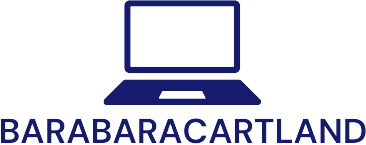Table of Contents
ToggleIn a world where every penny counts, budget optimization isn’t just a buzzword; it’s a survival skill. Imagine navigating through your finances like a pro, effortlessly dodging unnecessary expenses while still treating yourself to that fancy coffee you love. It’s not magic; it’s smart budgeting.
With the right strategies, anyone can transform their financial chaos into a well-oiled machine. Why let your money play hide and seek when it could be working hard for you? From cutting costs to maximizing savings, budget optimization is the secret sauce to financial freedom. So buckle up and get ready to take control of your wallet—because who doesn’t want to spend less and save more?
What Is Budget Optimization?
Budget optimization involves maximizing the effectiveness of financial resources. It focuses on assessing income, expenditures, and savings to identify opportunities for improvement. This process aims to create a balanced financial plan that aligns with set goals.
Budget optimization entails analyzing spending habits. Reviewing expenses helps pinpoint areas where costs can be reduced. Identifying unnecessary expenses contributes to better financial control. Specific tools and techniques, like software applications and spreadsheets, aid in tracking financial activities.
Implementing budget optimization strategies fosters smarter spending. Allocating funds to priority areas ensures necessary expenses receive attention. Utilizing envelopes for cash spending or setting category limits leads to better insights into financial habits. Each method provides clarity on where the money goes and highlights potential savings.
Regular reviews support ongoing budget optimization. Monthly financial check-ins can reveal trends and discrepancies that require attention. Adjusting the budget based on these findings helps maintain financial health. Flexibility is crucial; changes in income or unexpected expenses may necessitate budget revisions.
Budget optimization plays a vital role in achieving financial goals. Individuals who focus on streamlining their finances often find they can enjoy little luxuries while maintaining control over their spending. Success in budget optimization allows people to allocate funds towards savings and investments, paving the way toward financial freedom.
Importance Of Budget Optimization

Budget optimization plays a crucial role in effective financial management. It enables individuals to maximize their financial resources while aligning spending with their goals.
Increased Efficiency
Efficiency increases when individuals optimize their budgets. By tracking income and expenses, they identify unnecessary expenditures. Regular assessments shed light on spending habits, allowing for corrective actions. Tools like spreadsheets or software enhance efficiency in tracking and adjusting budgets. Those who embrace these practices experience smoother financial management. The time saved through streamlined budgeting efforts allows for a greater focus on financial goals.
Better Resource Allocation
Better resource allocation stems from effective budget optimization. Individuals who analyze their financial activities can allocate funds more strategically. They discover critical areas to invest in, such as savings and necessary expenses. Prioritizing essential needs over wants ensures a balanced financial landscape. The use of categorization methods helps in maintaining discipline and clarity. With improved allocation, individuals might find themselves more equipped to handle unexpected costs or seize investment opportunities. Ultimately, smart allocation fosters a sense of control and stability over personal finances.
Strategies For Effective Budget Optimization
Budget optimization involves several strategic approaches that can enhance financial management. Implementing these strategies helps maximize resources and achieve financial goals.
Analyzing Current Spending
Effective budget optimization begins with a thorough analysis of current spending patterns. Tracking expenses allows individuals to identify non-essential items and recurring costs that can be reduced. Software applications and spreadsheets are powerful tools for recording and categorizing expenditures, making it easier to spot trends and areas for improvement. Comparing monthly cash flows also provides insight into spending habits, highlighting opportunities to cut back. Regular assessments ensure individuals stay aligned with their financial goals, facilitating better resource allocation.
Setting Clear Financial Goals
Setting clear financial goals creates a framework for budget optimization. Specific, measurable objectives guide spending decisions and help prioritize necessary expenses. Short-term goals, such as saving for a vacation, complement long-term aspirations like retirement savings. Individuals are encouraged to break down larger goals into manageable steps, fostering gradual progress. Regularly reviewing these goals promotes accountability and allows for adjustments when circumstances change. Focused financial goals lead to disciplined spending, ultimately facilitating a path toward greater financial freedom.
Tools For Budget Optimization
Utilizing the right tools enhances budget optimization. Various software solutions and manual techniques exist to assist individuals in managing their finances effectively.
Software Solutions
Financial software simplifies tracking and analyzing budgets. Applications like Mint offer expense categorization and real-time tracking, which improves awareness of spending habits. For those seeking extensive features, YNAB (You Need A Budget) enables users to set specific financial goals while monitoring transactions. Additionally, Quicken provides comprehensive financial management, covering investments, bills, and cash flow. Choosing the right software depends on individual preferences and financial needs, ensuring users can effortlessly manage their budgets.
Manual Techniques
Employing manual techniques encourages a hands-on approach to budgeting. Writing down expenses in a notebook fosters awareness of spending patterns. Using physical cash with the envelope method allows for intuitive management of discretionary spendings, like entertainment or dining. Creating a simple spreadsheet can help track monthly income and expenditures, promoting accountability. Regularly reviewing this data reveals trends and areas needing adjustment. Committing to these manual techniques instills discipline in financial practices, empowering individuals to better control their budget.
Common Challenges In Budget Optimization
Various challenges arise during budget optimization, impacting financial management. Common obstacles include resistance to change and data overload.
Resistance To Change
Change can feel uncomfortable, leading to resistance in adopting new budgeting practices. Individuals often hesitate to shift from familiar habits, even when current methods result in overspending. Many feel overwhelmed by the idea of analyzing expenses or implementing new tools. Strategies that push for change focus on gradual adoption of new techniques, fostering comfort over time. Reinforcing the benefits of improved financial health can motivate individuals to embrace new budgeting methods.
Data Overload
Data overload poses a significant challenge, causing confusion in tracking financial activities. An excessive amount of information can lead to indecision or frustration, especially for those not accustomed to managing budgets. Assessing income and expenses becomes daunting when numerous details cloud the picture. Simplifying data analysis helps maintain focus on key financial goals. Prioritizing essential information enables individuals to recognize patterns in spending, making informed decisions easier. Utilizing efficient tools that streamline data simplifies the budgeting process and enhances clarity.
Embracing budget optimization transforms financial management into a powerful tool for achieving personal goals. By adopting effective strategies and utilizing the right tools individuals can gain control over their spending and savings. This proactive approach not only enhances financial clarity but also fosters a sense of stability and confidence.
Through regular assessments and adjustments individuals can navigate unexpected expenses and seize investment opportunities with ease. Ultimately, the journey toward financial freedom becomes more attainable as smart budgeting practices pave the way for a balanced and fulfilling financial life. Taking charge of one’s budget is the first step towards enjoying both necessary expenses and small luxuries without compromising future financial security.




